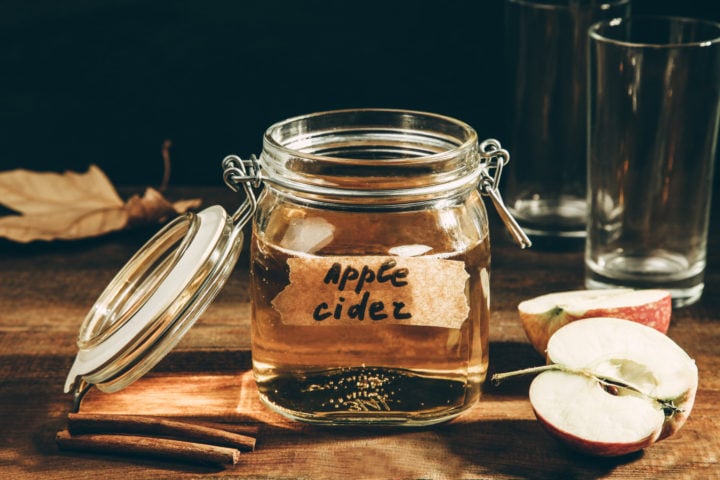
While apple cider vinegar is more popular and readily available in your local stores, apple cider is a less acidic option and is sweeter than apple cider vinegar. Instead of being fermented to acetic acid, apple cider remains in the pasteurized stage, hence the higher pH compared to apple cider vinegar, and is often mixed with teas or drank on its own. Since it’s not readily available in local shops, you might need a substitute when you run out of it.
Apple juice is the best apple cider substitute, providing that sweet and crisp taste. Other excellent alternatives include rice wine vinegar, red wine vinegar, and white wine vinegar. A good apple cider substitute provides that sweetness you need without overpowering other ingredients in a dish.
Read on to know which apple cider substitute works best for you.
Table of Contents
Best Apple Cider Substitutes
1) Apple Juice
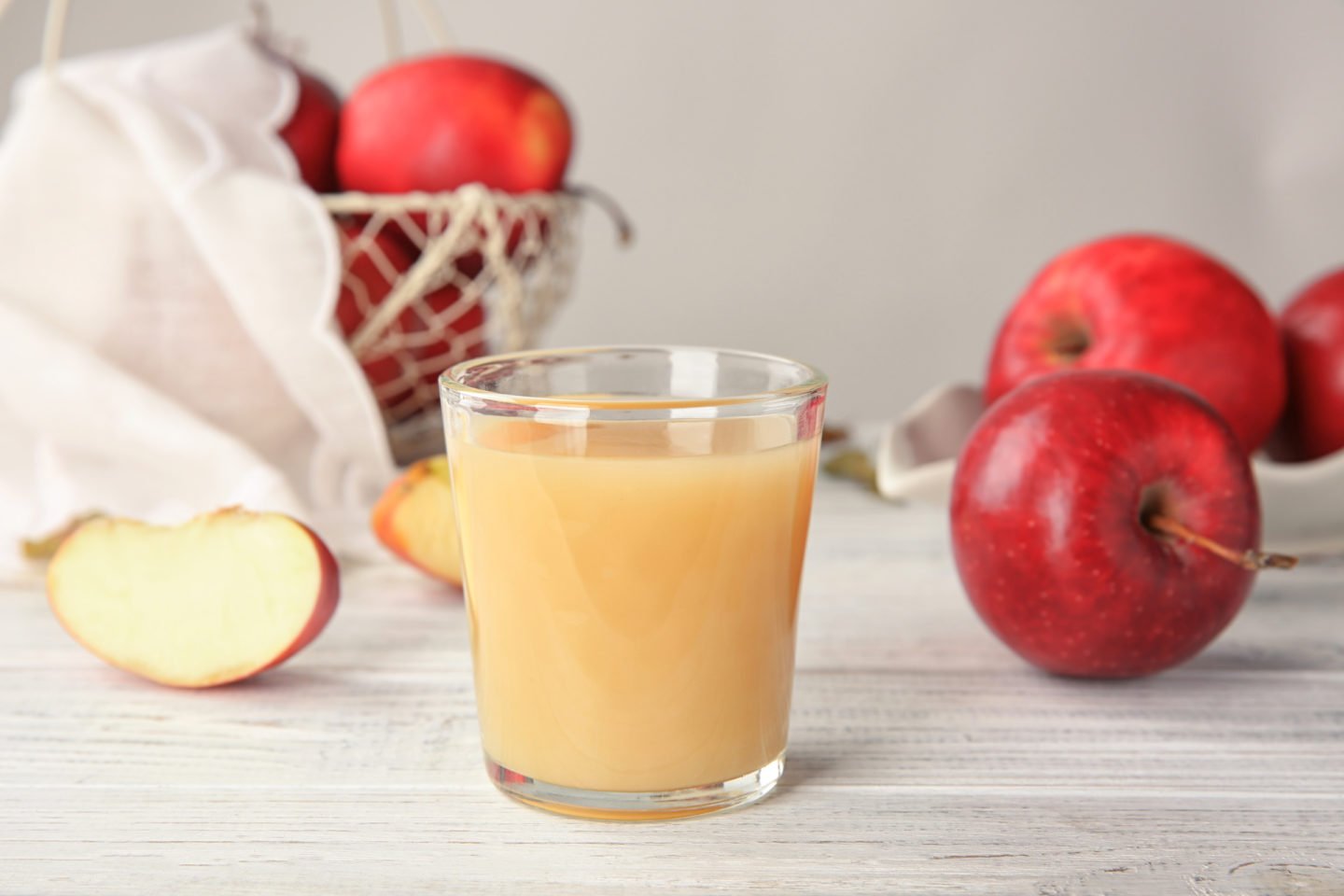
Apple juice is the best substitute you can use in the absence of apple cider. Apple juice is a sweet drink usually found on the healthy beverage aisle in your local stores. It owes its clear appearance to the multiple filtering systems that it passes through. On the other hand, apple cider presents a cloudy appearance as most of the apple pulp is left in the liquid, giving the rich, sweet yet sharp taste.
When used as a substitute, apple juice can be too sweet and might need to be mixed with lemon juice or used alone, depending on your taste. Some brands add sugar to their apple juice to make it more palatable to kids, but it's better to have brands that offer 100% apple juice to achieve a closer taste with apple cider.
Apple juice can be used as a substitute for every recipe that requires apple cider. We recommend using one tablespoon of apple juice for every tablespoon of apple cider in the recipe. However, if you want to achieve that sharp taste, you can add a quarter of a tablespoon of lemon juice to one tablespoon of apple juice, given that your apple juice does not contain added sugar.
2) Rice Wine Vinegar
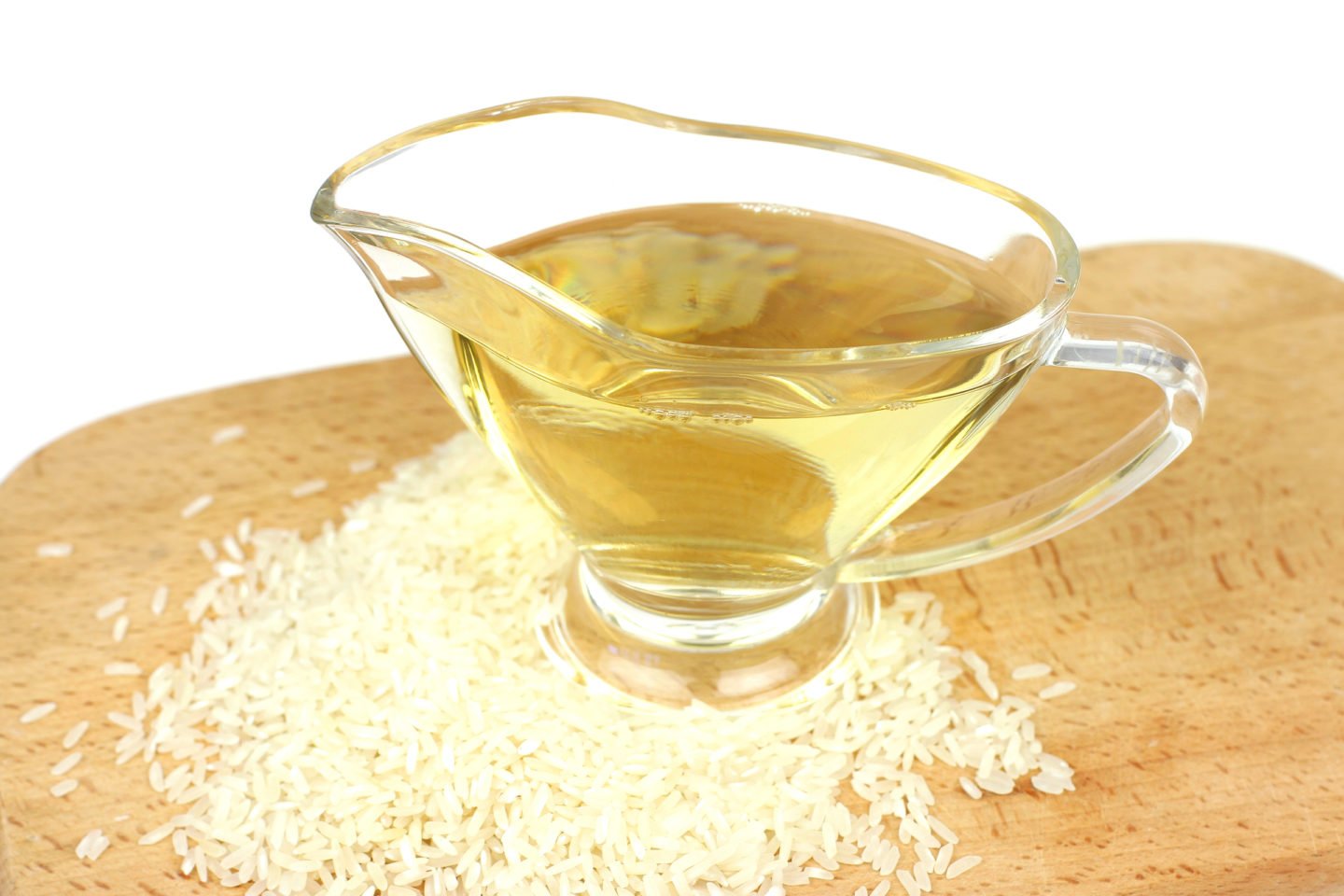
As the name implies, rice wine vinegar is a fermented liquid from glutinous rice resulting in a semi-sweet, crisp, sour vinegar. Unlike apple cider, rice wine vinegar contains alcohol that adds to its texture and effect on the dish's overall taste. Rice wine vinegar can be more sour and tangy than apple cider, and you might want to add sugar or sugar derivatives to balance the acidity.
When used as an alternative, rice wine vinegar offers a tenderizing and deodorizing effect that helps with meat and seafood recipes. In Asian cuisine, rice wine vinegar is often added to stir-fries and a bunch of dim sum. But to achieve apple cider's sweetness, add a quarter tablespoon of table sugar or corn syrup to a tablespoon of rice wine vinegar.
You can then replace a tablespoon of apple cider with one tablespoon of the mixture you created. If you wish to use rice wine vinegar without adding sugar, start by replacing every tablespoon of apple cider with half a tablespoon and work your way up. Rice wine vinegar is tangy and sour and can be overpowering.
In a pinch, you can also use rice vinegar. Although rice vinegar offers an overpowering acid taste, it is milder than other vinegar and still contains that slightly sweet finish.
3) Red Wine Vinegar
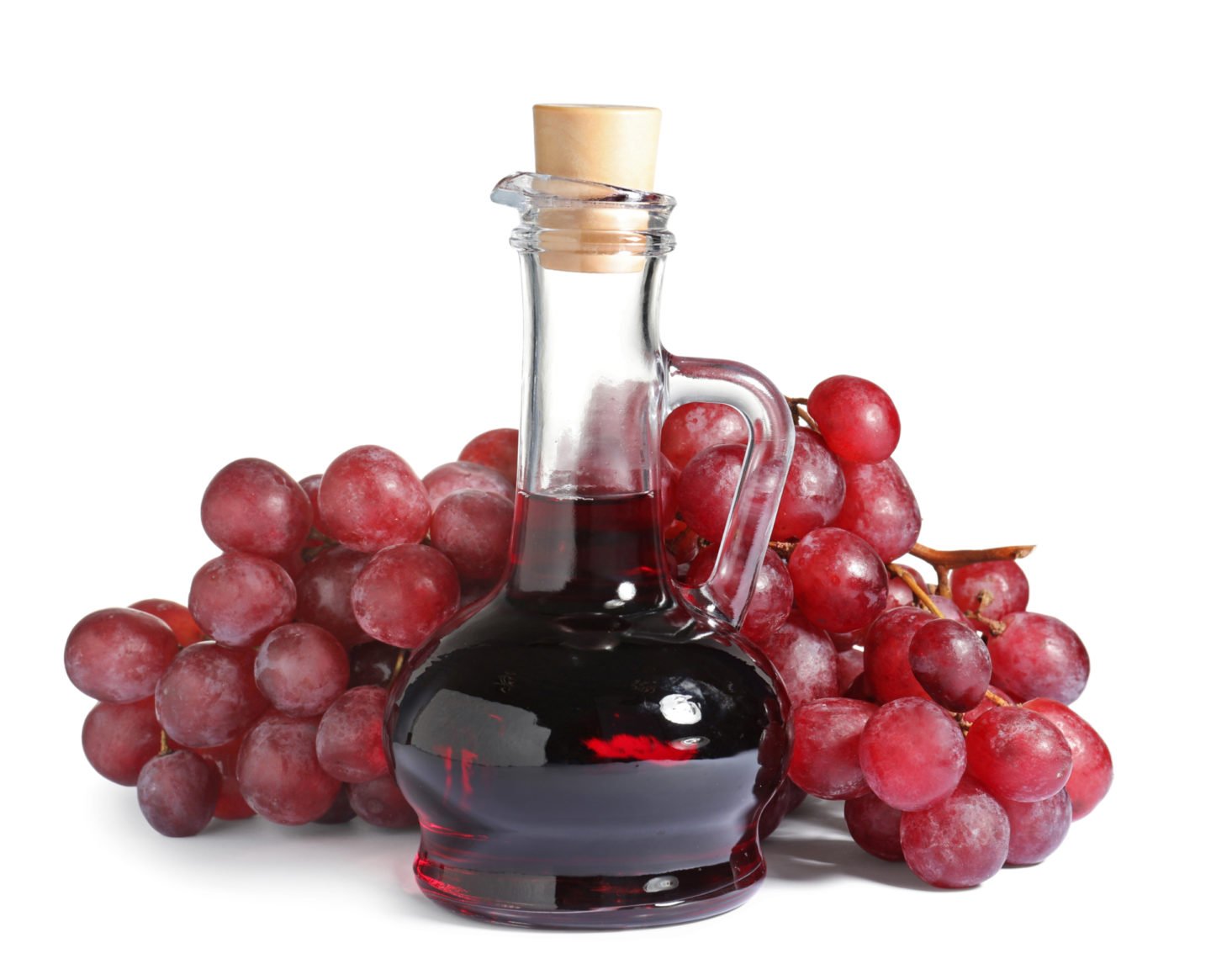
Unlike rice wine vinegar, red wine vinegar is fermented from red grapes and presents a tangier finish. Although it's vinegar, the liquid's strong punch gives a balanced taste, making it an excellent apple cider substitute. Ideally, red wine vinegar has great effects on meat and seafood, has alcohol that counteracts the smell, and provides a tenderizing factor.
When used as a substitute, you can use a tablespoon of red wine vinegar to replace one tablespoon of apple cider indicated in the recipe you're following. You can add a pinch of sugar if you wish it to be sweeter, but red wine vinegar in itself will do.
4) White Wine Vinegar
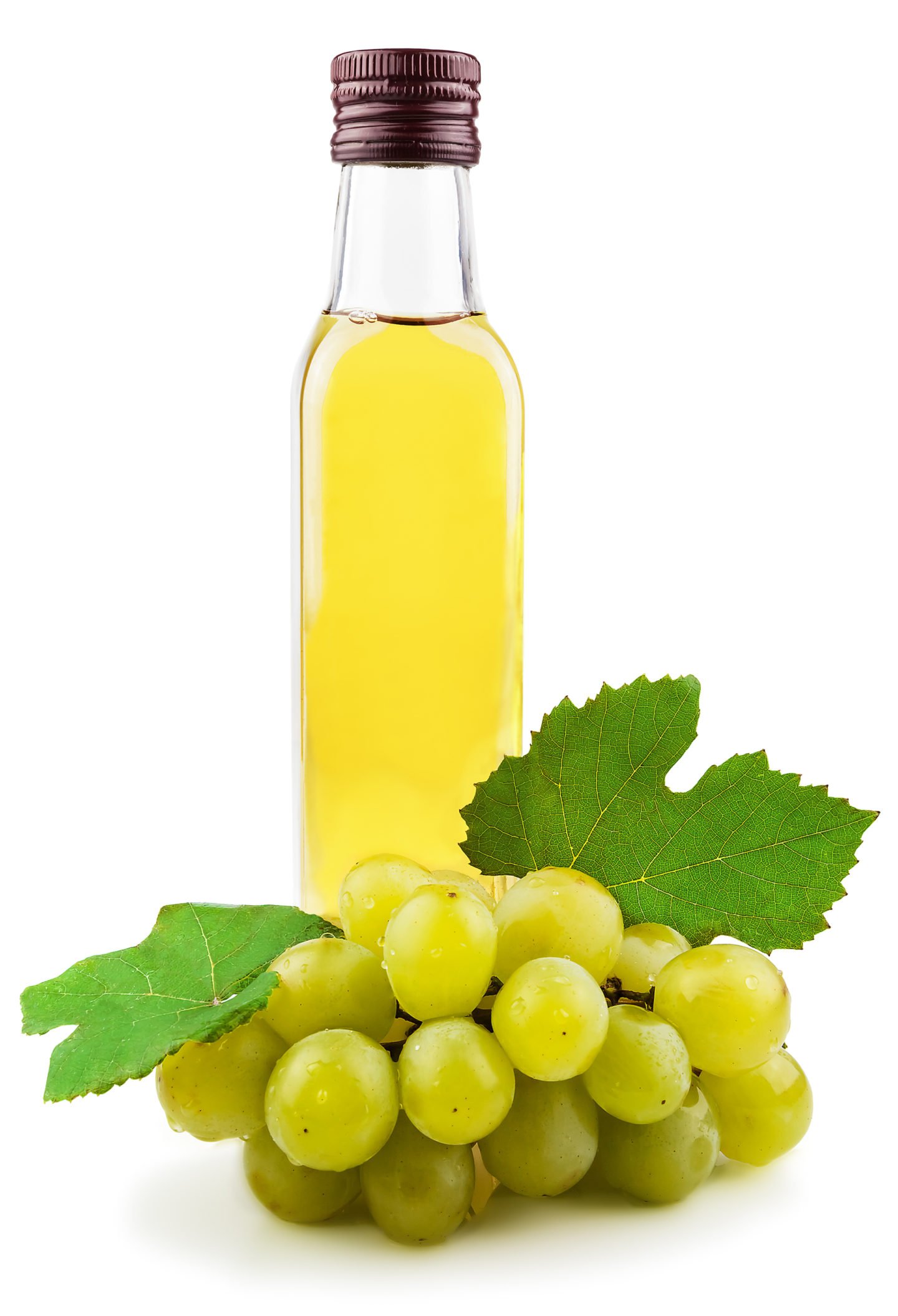
Unlike red wine vinegar, white wine vinegar is fermented without the grape's skin, producing a clean, crisp taste. Although made from grapes, white wine vinegar has more acetic acid and lower alcohol levels. Its acidity can be a bit overpowering, and you might want to add sugar to form a sweeter mixture resembling apple cider.
White wine vinegar is generally excellent for recipes with meats. The alcohol and acetic acid content act as a deodorizing and tenderizing agent while the flavor blends well with other ingredients. To achieve apple cider's sweetness, you can add half a tablespoon of sugar to one tablespoon of white wine vinegar and use the same amount of mixture to replace apple cider as indicated in the recipe.
5) White Wine

As a precursor of white wine vinegar, white wine is also made from white grapes without the skin resulting in a clear liquid with a crisp taste. The fermentation process of white stopped at producing alcohol than acetic acid, giving a sweeter taste without sourness, which perfectly resembles apple cider. White wine is an excellent addition to meats and stir-fries but can also be added to salad dressing and dips.
While white wine has a cleaner taste than apple cider, it’s less sweet. When used as a substitute, you can use two tablespoons of white wine for every tablespoon of apple cider mentioned in the recipe. There’s no need to add sugar as it can affect the wine’s texture.
6) Sherry Vinegar
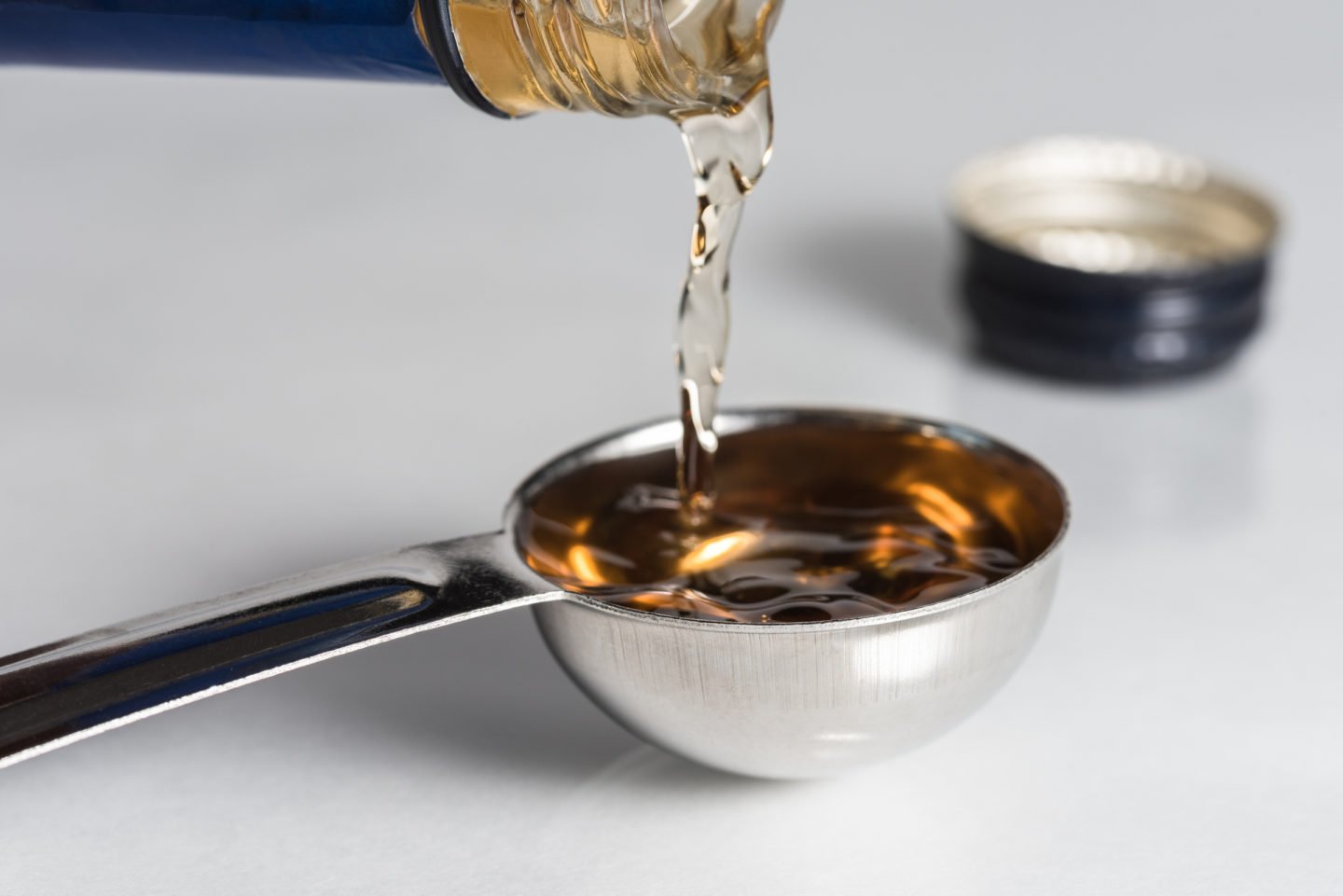
Sherry wine vinegar or sherry vinegar are made from fermented palomino grapes that offer a complex taste and texture; rich, nutty, and sharp with a sweet finish. Although sherry vinegar contains acetic acid, its base is a fruit, making it a great apple cider substitute. You can use this for casseroles and stir-fries as it goes well with other ingredients.
You can use it alone or add sugar if you desire it to be sweeter. We recommend mixing two tablespoons of sherry vinegar with one teaspoon sugar and replacing every tablespoon of apple cider with one tablespoon of the sherry vinegar mixture. Adding the liquid to salads and dips adds a perfect balance of sweet and sour.
7) Sherry Wine

Sherry wines are produced in different styles, from dry, pale, and sweet. Like vinegar, sherry wines bring rich, nutty, saline flavors to dishes. When it comes to comparing sweetness, sherry wines have 5-15% sugar depending on the style, even higher than apple cider’s sugar content, making it a suitable alternative.
Moreover, sherry wines contain 16-18% of alcohol that offers a tenderizing and deodorizing effect, especially on meats and seafood. The only catch when using sherry wine is the short shelf life. However, if you have cooking sherry at home, then you’re good to go. When used as a substitute, just use half a tablespoon of sherry wine for every tablespoon of apple cider needed.
8) Balsamic Vinegar
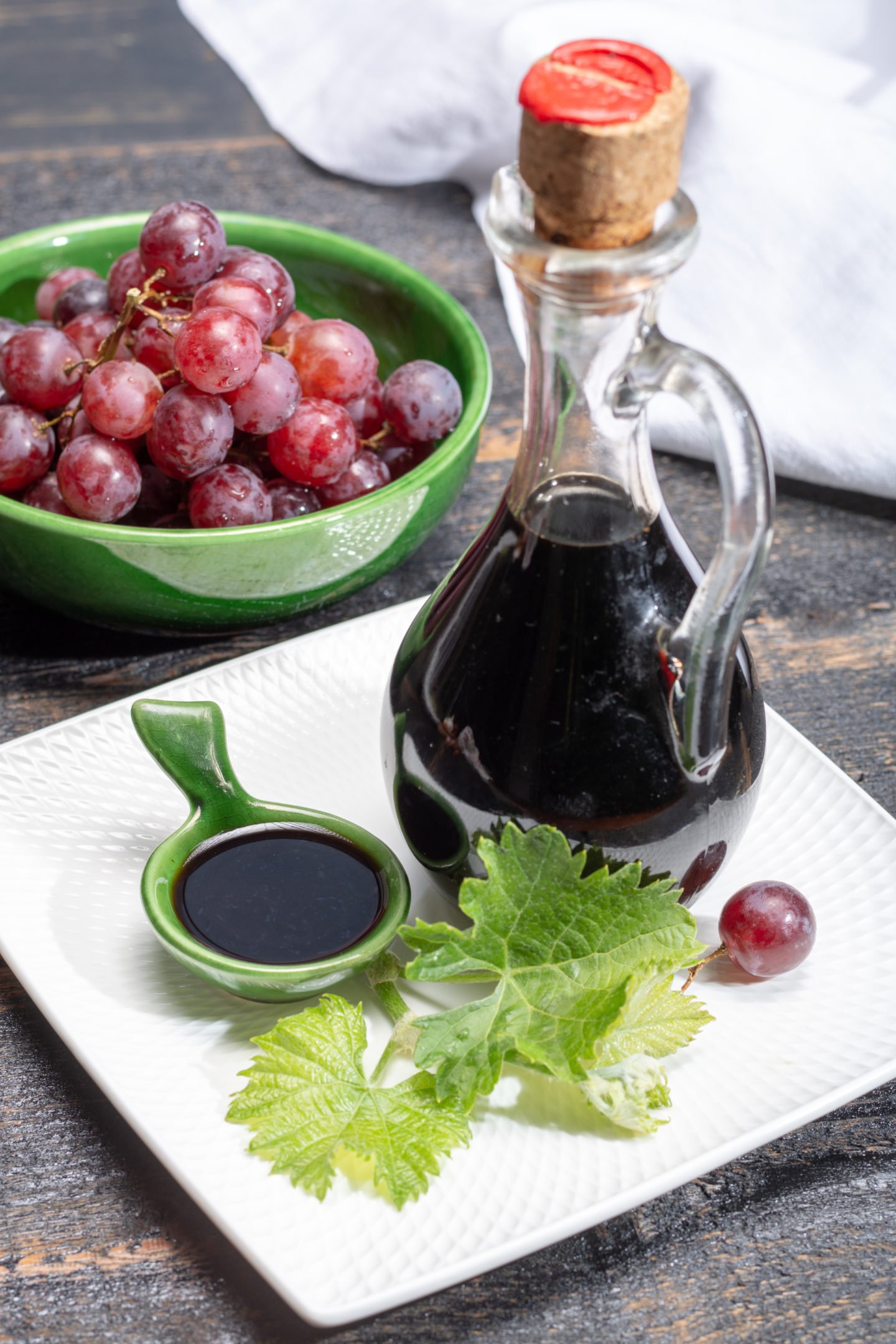
Balsamic vinegar is rare and expensive, but if you already have it on your shelves, you have a perfect apple cider substitute. Balsamic vinegar offers a sweet taste and a mixture of chocolatey, nutty finish and an umami-rich flavor. After it was aged for at least 12 years, balsamic vinegar becomes liquid gold. It makes every dish better, from stir-fries and meats to salad dressing and dips.
Balsamic vinegar commonly contains 15% sugar, explaining its sweet taste. For this reason, no added sugar is necessary when we use this as a substitute. However, the flavors might be different, so we recommend using half a tablespoon of balsamic vinegar for every tablespoon of apple cider needed in the recipe.
9) Beer Vinegar

As the name implies, beer vinegar is a fermented beer that produces acetic acid from alcohol. Because there are many beer sources (ale, lager, stout, pilsner, porter, to name a few), the vinegar taste differs but shares the same acidity as all the other vinegar. Like other vinegar, beer vinegar provides a deodorizing effect on meats and seafood.
However, unlike wine-based vinegar, beer vinegar’s sour taste can be overpowering, and you need to add sugar to match apple cider’s sweetness. To use as a substitute, simply add half a teaspoon of sugar to one tablespoon of beer vinegar. Using the mixture, replace apple cider using a 1:1 ratio.
10) Honey Cider
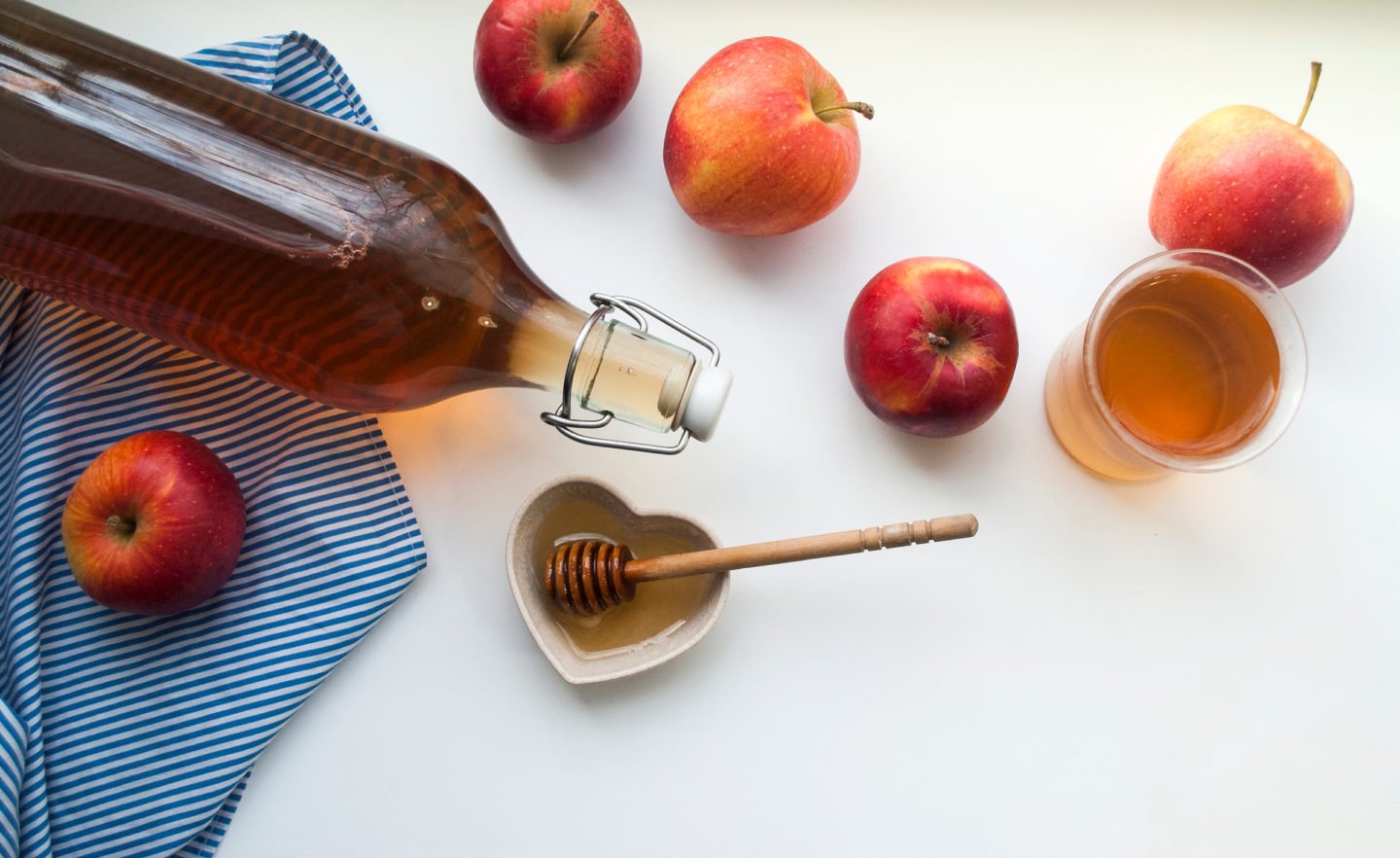
Honey cider is more commonly known as Mead. One of the world’s oldest alcoholic beverages, mead is simply made from honey, water, and yeast. After fermentation, the yeast produces a sour vinegar but with a sweet taste from the honey. Aside from being an excellent source of flavor, honey cider also offers benefits for the immune system, bone, and heart health.
When used as a substitute for apple cider, you can simply replace each tablespoon of apple cider with one tablespoon of honey cider. The sweetness from honey resembles apple cider’s tastes, making it an excellent addition to dishes containing meats and fish. You can also add honey cider when making salad dressings and dips.
11) Hard Cider
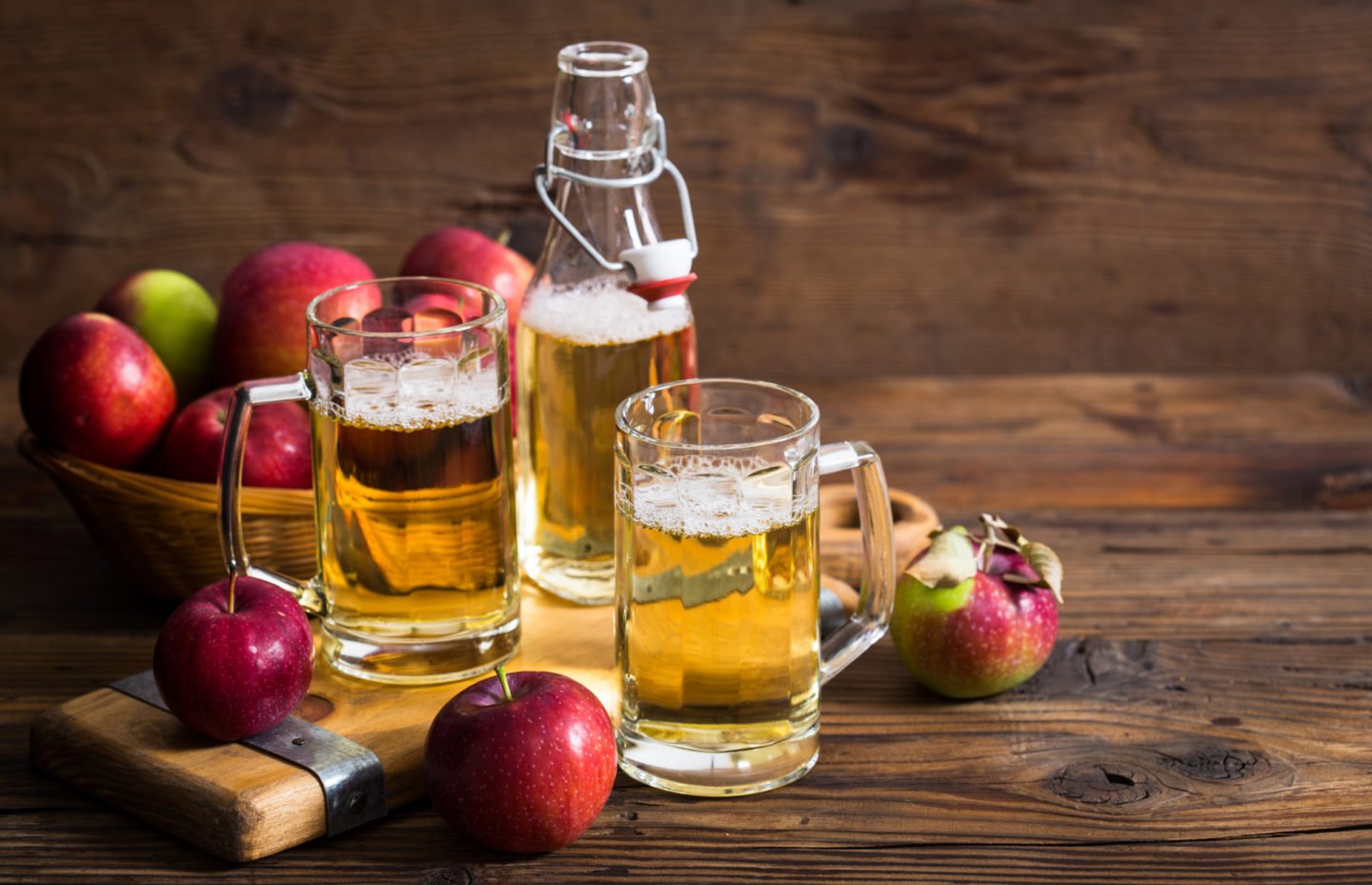
The word “hard” in hard cider indicates that the cider already contains alcohol as a product of fermentation. It can be any cider from any fruit, including apples, resulting in a sweet, tangy, and sometimes punchy liquid. Nevertheless, you can use hard cider in the absence of apple cider. Its taste goes well with any meat dish, salads, and dips.
There is no need to add sugar when using hard cider, but you have to substitute every tablespoon of apple cider with one and a half tablespoons of hard cider. If you have apple cider and leave it exposed to air, it might develop a sour taste and becomes hard cider. The taste might change, but that doesn’t mean your cider has spoiled; instead, it only developed alcohol which doesn’t change much.
12) White Vinegar
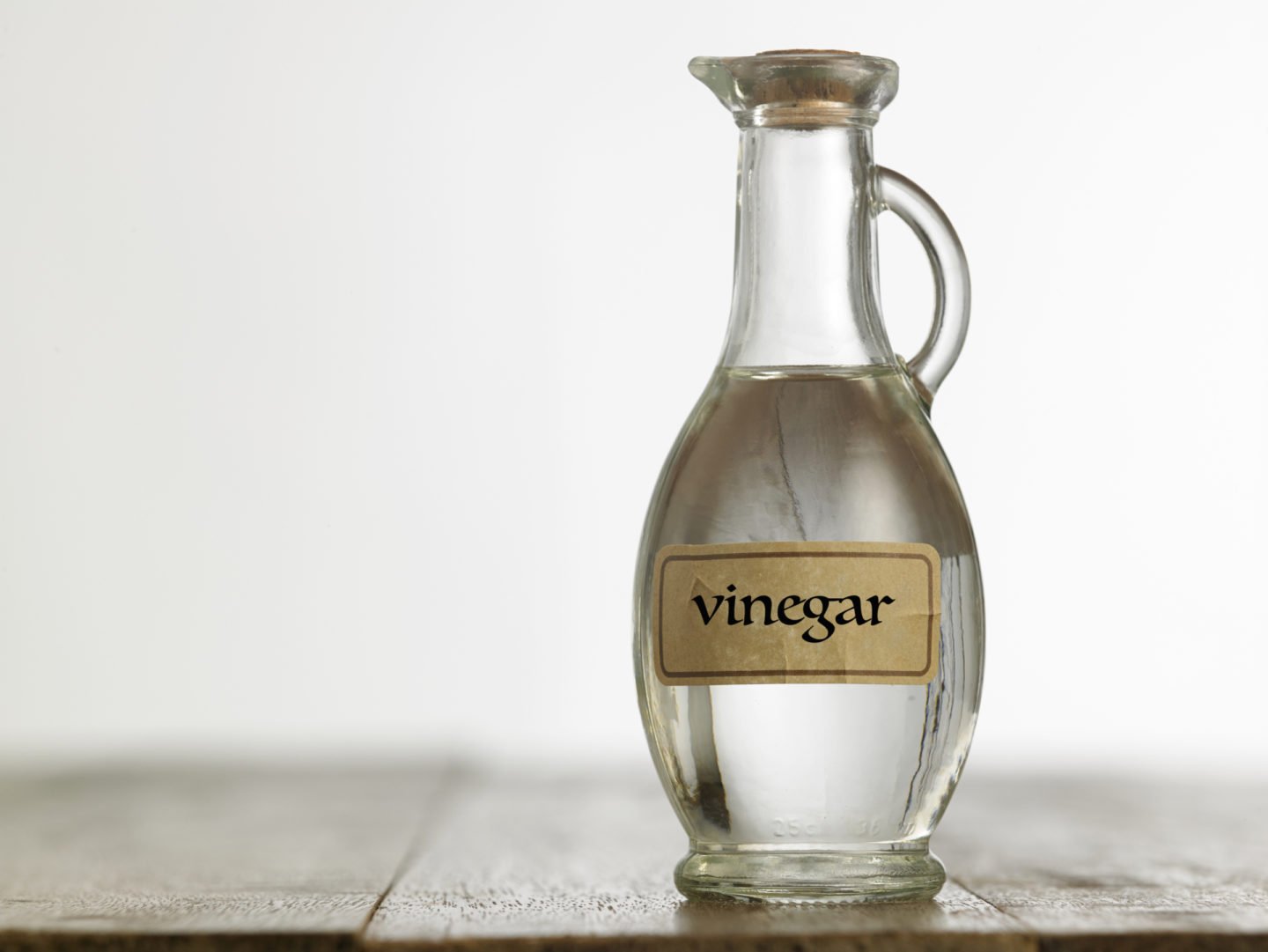
White vinegar is often called spirit vinegar or distilled vinegar as it's only composed of acetic acid and water. With that said, you can’t expect any sweet taste from this, and you need sugar to mimic apple cider’s sweetness and tame the sharp sour taste it gives off. Due to its strong acidic nature, white vinegar removes odors from meat and seafood, and it’s also a great addition to salads and stir-fries.
To achieve apple cider's sweetness, you can mix a tablespoon of sugar with three tablespoons of white vinegar. You can then replace a tablespoon of apple cider with half a tablespoon of the mixture. Although mixed with sugar, the flavors of white vinegar are still intense, hence the ratio.
13) Malt Vinegar
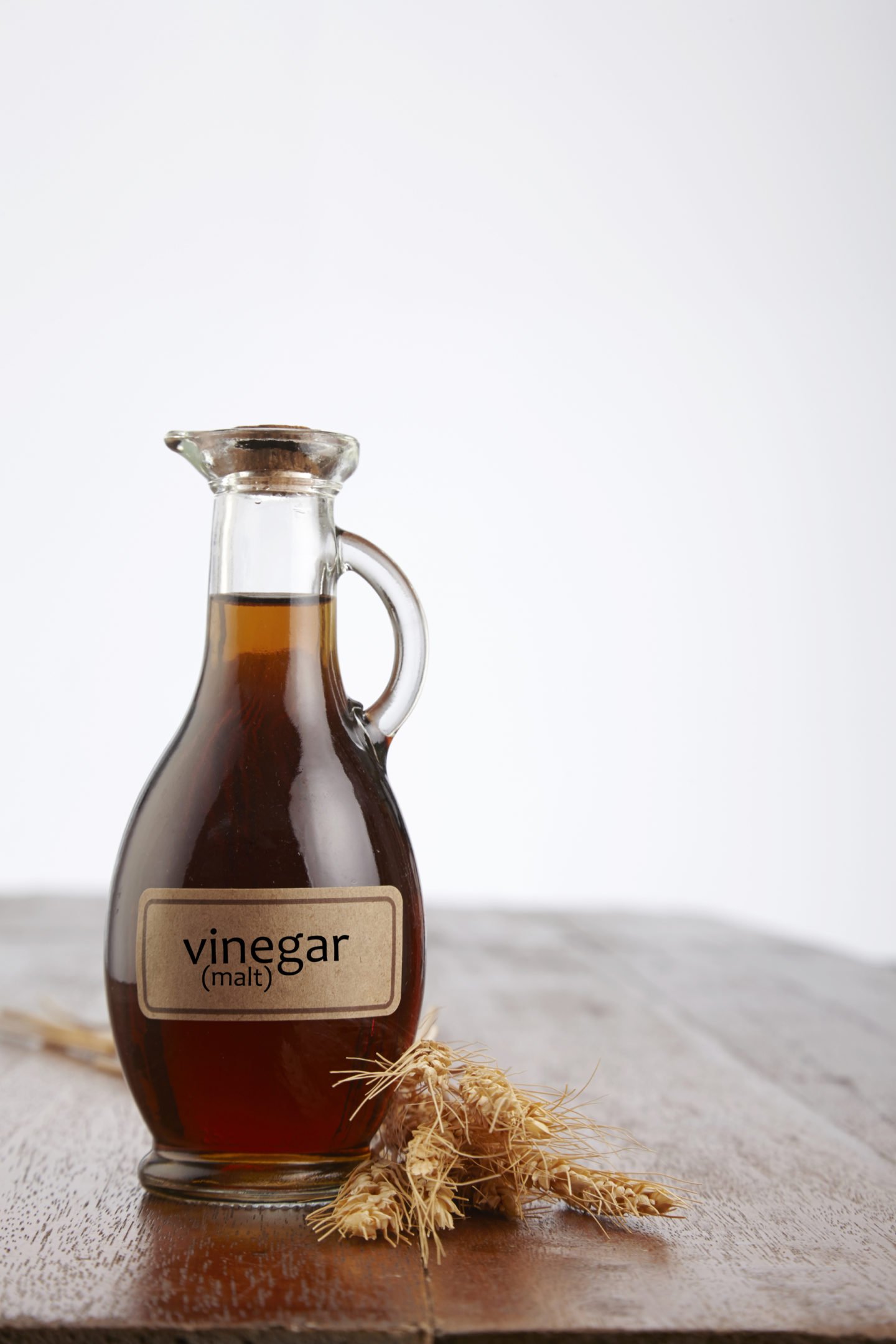
As a product of barley fermentation, malt vinegar is one of the mildest vinegar available in the market. It gives a sweet finish and a tolerable acidic taste, making it an excellent apple cider substitute. As a regular addition to meat dishes and stir-fries, you can use malt vinegar in the same way or as an addition to other recipes.
We recommend using the same amount of apple cider and malt vinegar when substituting. Since malt vinegar is already naturally sweet, you don’t need additional sweeteners. Unlike other vinegar, you can expect a well-balanced flavor when using malt vinegar.
14) Champagne Vinegar
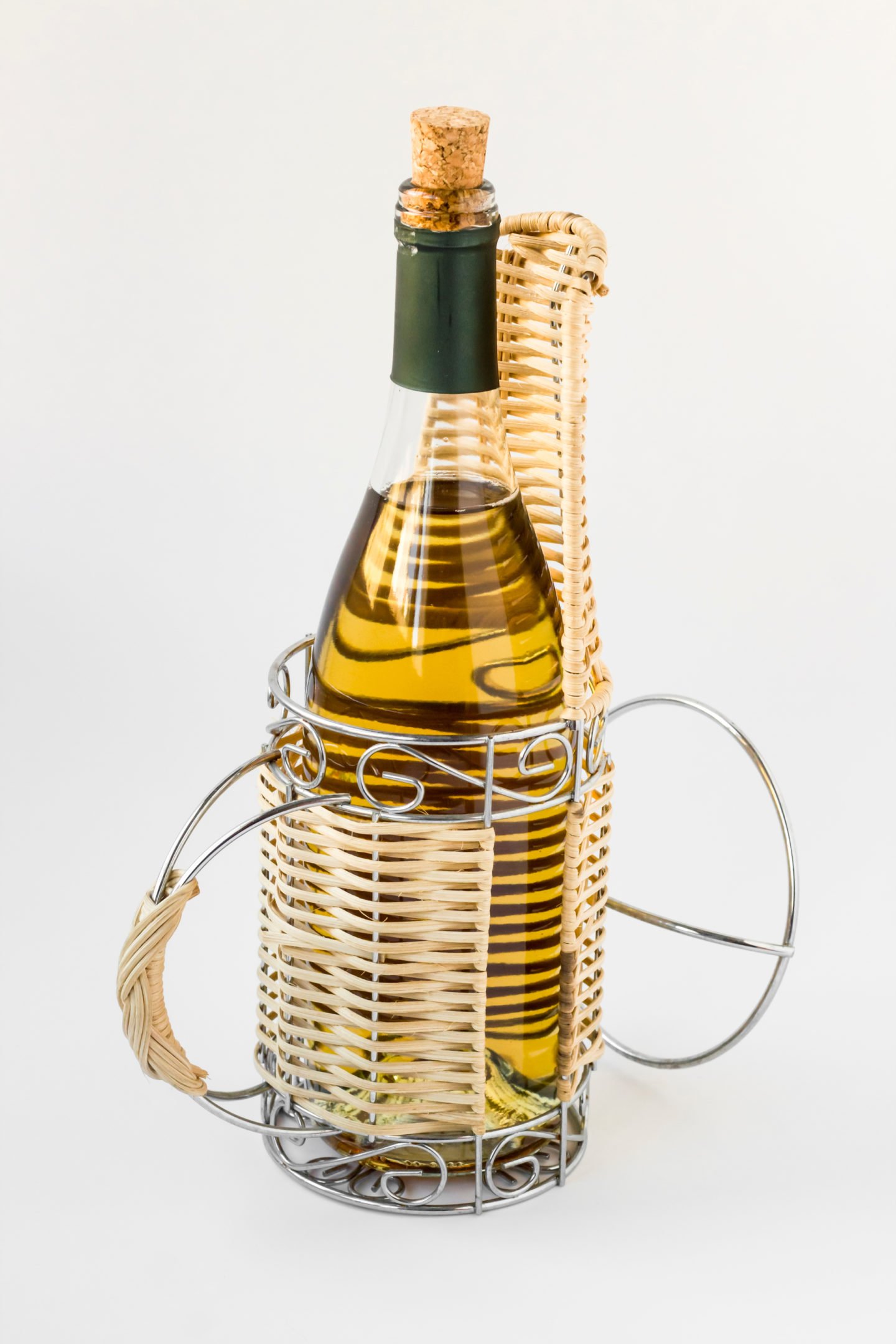
Like other grape-based vinegar, champagne vinegar possesses a lighter scale of flavors. Sparkling champagne from Pinot grapes is fermented to produce acetic acid resulting in a sour liquid that’s punchy, rich, yet sweet, and light. Champagne vinegar is an excellent alternative to apple cider when making stir-fries as the alcohol evaporates while retaining the flavor.
To substitute apple cider, we recommend using one and a half tablespoons of champagne vinegar for every tablespoon of apple cider. No sugars are needed to be added as they are naturally sweet.
15) Lemon Juice
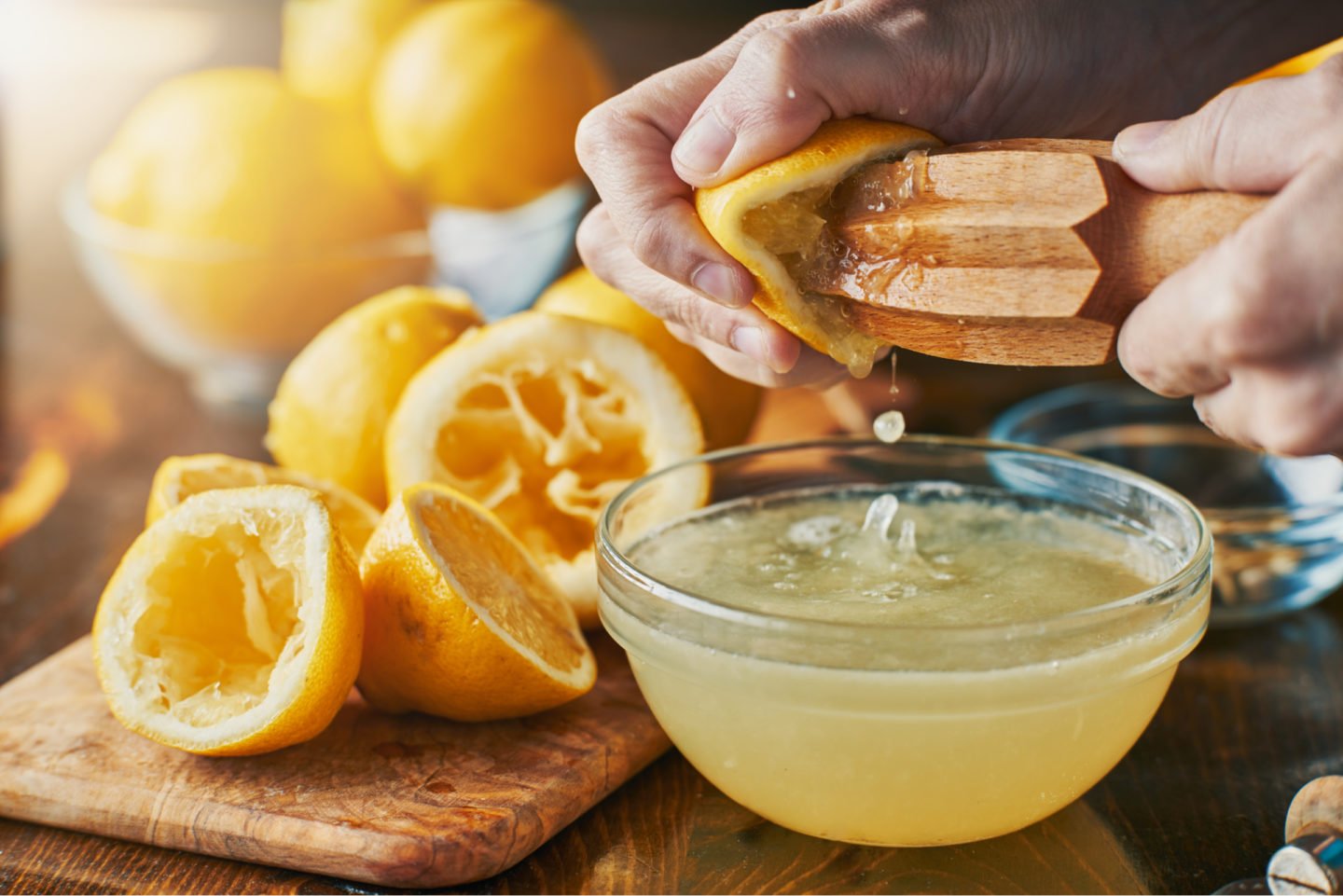
Now we’re on to the fresher and readily available apple cider substitute: citrus juice.
First on the list is lemon juice. Although more acidic than apple cider, lemon juice offers a distinct sharp taste that somehow resembles apple cider. Although it grants a citrusy aroma and flavor to your dish, adding sugar to the juice tames that.
When used as a substitute, three tablespoons of lemon juice must first be mixed with half a tablespoon of sugar to balance the sour taste. You can then add half a tablespoon to replace every tablespoon of apple cider with this mixture. The mixture best blends with salads and dips but generally makes every dish better.
16) Lime Juice
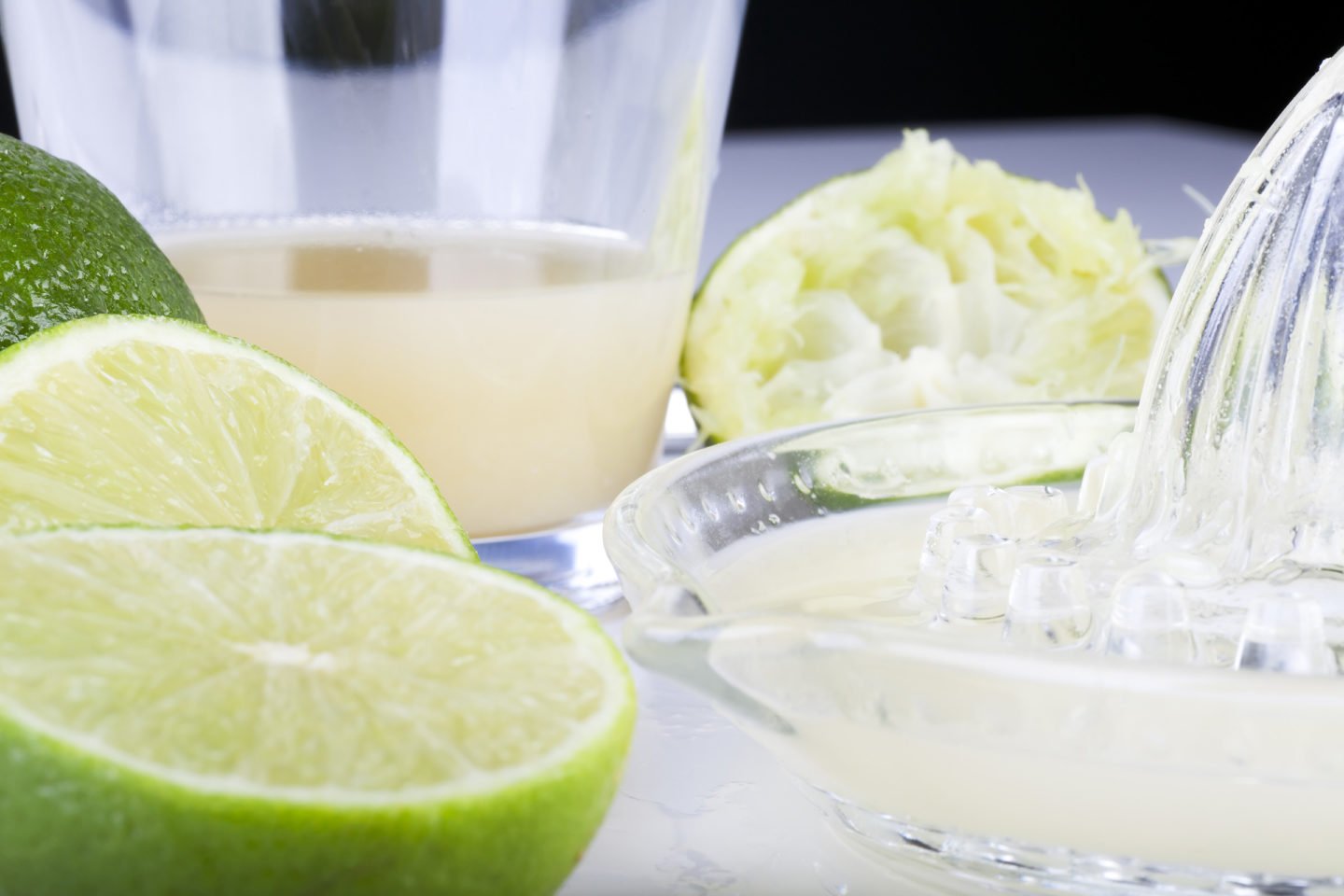
Lime juice is another excellent substitute for apple cider. Although lime juice does not possess a lemon’s slightly sweet finish, it offers a more straightforward acidic taste that others prefer when working with meats and seafood. However, when used to substitute apple cider, sweeteners are needed to be added to achieve similar flavors.
You can use table sugar or other sweeteners like corn syrup for this mixture. Just add one tablespoon of sweetener to four tablespoons of lime juice. Like lemon juice, you can use half a tablespoon of the mix to replace every tablespoon of apple cider mentioned in the recipe.
17) Orange Juice
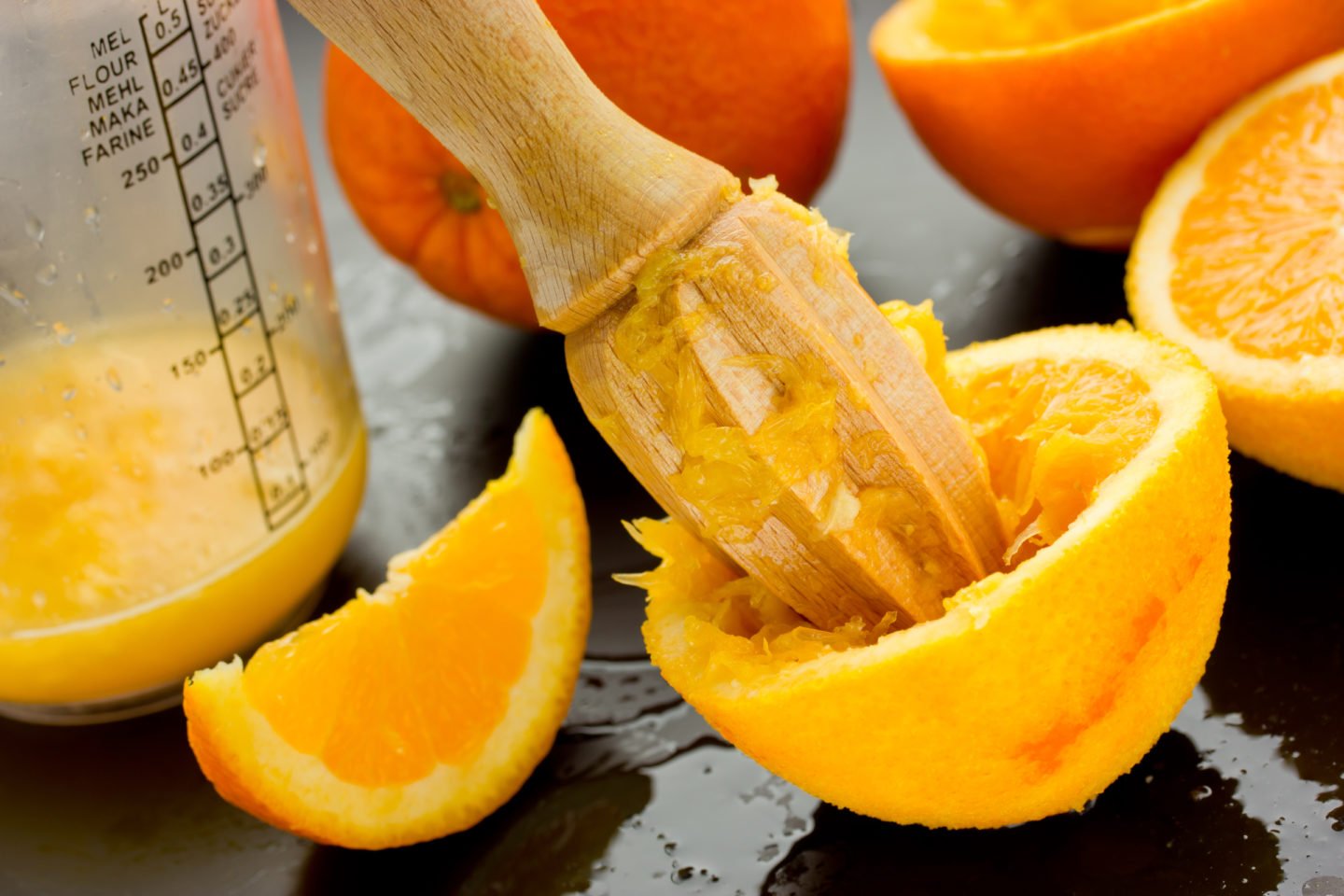
Orange juice might not be a close resemblance to apple cider, but every household contains orange juice, so we're here to teach you how to manage that as a substitute for apple cider. Since orange juice is citrusy and very sweet, you can try adding white vinegar to your orange juice to balance it out. Add 1 tablespoon of white vinegar or apple cider vinegar to a quarter cup of orange juice, and you’re good to go.
Summary
Check out the following best apple cider substitutes for your recipes. Does your kitchen have these instead of apple cider? Look at their interesting qualities and see which works for you.
| Substitute | Notes |
|---|---|
| Apple Juice | Sweet but can be less concentrated and might have added sugar. A splash of lemon enhances the flavor. |
| Rice Wine Vinegar | Vinegar with a sweet finish. Needs to add sugar to match apple cider’s sweetness. Great for meats. |
| Red Wine Vinegar | Offers a punchier flavor and adds tenderizing and deodorizing effects on meats. |
| White Wine Vinegar | Offers a clean, crisp taste. Needs added sugar to match apple cider’s sweetness. |
| White Wine | Offers a crisp, sweet taste but without the sourness. Great for meats and stir-fries. |
| Sherry Vinegar | A fruit vinegar that provides a rich, nutty flavor. Needs added sugar to match apple cider’s sweetness. |
| Sherry Wine | Sweet with a rich, nutty aroma. Great for every kind of dish. Does not require added sugar. |
| Balsamic Vinegar | Has a chocolatey, nutty finish and an umami-rich flavor. Use ½ tbsp per tablespoon of apple cider. |
| Beer Vinegar | Sourer than wine-based vinegar. Needs added sugar to balance the sharp flavors. |
| Honey Cider | A sweet alcoholic beverage. Made from honey, water, and yeast. No added sugar is needed. |
| Hard Cider | Cider with alcohol. Possesses a tangy, sour, yet sweet taste. Perfect for salads. |
| White Vinegar | Strong, pungent acidic taste. Made with only water and acetic acid. Needs sugar to achieve sweetness. |
| Malt Vinegar | Mild vinegar made from fermented barley. Has a sweet, well-balanced finish. |
| Champagne Vinegar | Another mild grape-based vinegar. Alcohol evaporates with heat, perfect for stir-fries. |
| Lemon JuiceA natural acid source. Might come off too sour, needs added sugar to balance the taste. | |
| Lime Juice | A clearer citrus scent and flavor. Great for meats and seafood. Sweeteners must be added. |
| Orange Juice | Can be mixed with white vinegar to achieve a sharp and tangy finish. |
Related Questions
Yes. However, apple cider vinegar has been fermented to acetic acid and has a strong, pungent acidic taste and smell. Unlike apple cider, which offers a sweet taste, apple cider vinegar is sourer. But we can fix this by adding brown sugar. Although there are other better alternatives, you can use apple cider vinegar when in a pinch.
Sure, you can! Apple cider and apple juice share the same thing: they are both unfermented products of apples. The only difference is that apple juice is finely filtered, while apple cider retains the most pulp in the solution. As for the taste, apple cider offers a richer flavor and is perfect for recipes that need apple juice.
Different kinds of fruit vinegar are the best apple cider vinegar substitutes. Aside from their acidity, they also share a common trait: they offer a sweet taste. White wine vinegar, red wine vinegar, sherry vinegar, balsamic vinegar, and champagne vinegar are all suitable alternatives for apple cider vinegar and apple cider.

Leave a Reply